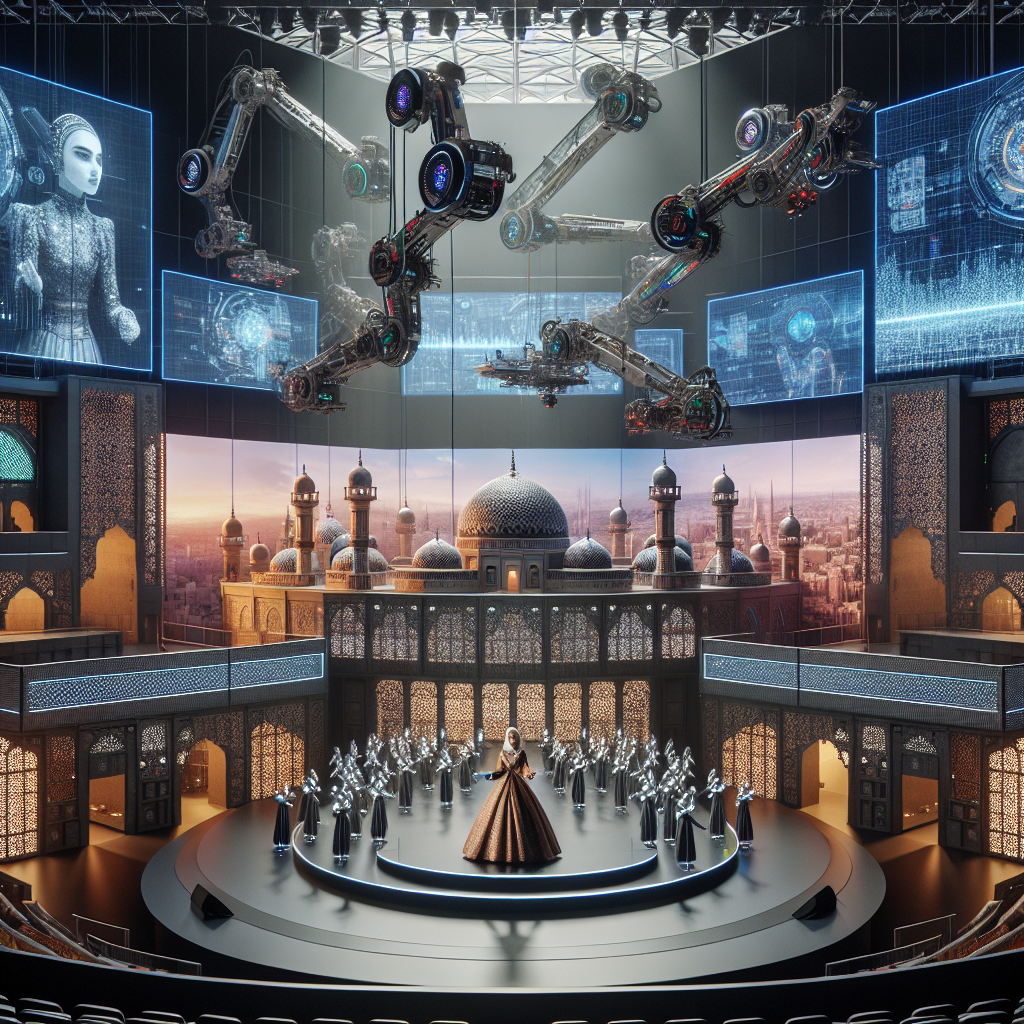The Future of AI in Theatre Production and Stage Design
Artificial intelligence (AI) is reshaping industries across the board, and the world of theatre production and stage design is no exception. As technology continues to advance, AI is becoming an increasingly integral part of the creative process in creating immersive and innovative theatrical experiences. From enhancing stage design to streamlining production workflows, AI is revolutionizing the way theatre is produced and staged.
AI in Stage Design
One of the most exciting applications of AI in theatre production is in stage design. Traditionally, stage design has been a time-consuming and labor-intensive process, requiring designers to create detailed drawings and models by hand. With AI, designers can now use advanced software programs to generate 3D models of sets and props, allowing them to visualize and experiment with different design ideas quickly and easily.
AI can also help designers optimize their designs for the specific needs of a production. By analyzing data on audience behavior and preferences, AI algorithms can suggest changes to a set design to enhance the overall theatrical experience. For example, AI can analyze the acoustics of a theater and recommend adjustments to the set design to improve sound quality for the audience.
Another key benefit of using AI in stage design is the ability to create dynamic and interactive sets. By incorporating sensors and smart technology into set pieces, designers can create sets that respond to the movements of actors and changes in the environment. This level of interactivity can create truly immersive theatrical experiences for audiences, blurring the line between the stage and the audience.
AI in Production Workflows
AI is also transforming the production workflows of theatre companies, helping to streamline processes and improve efficiency. One of the key areas where AI is making an impact is in scheduling and resource management. By analyzing data on past productions and performance schedules, AI algorithms can help production managers optimize the use of resources such as actors, crew members, and equipment, ensuring that productions run smoothly and on time.
AI can also assist in the casting process, helping directors and producers find the right actors for a production. By analyzing data on actors’ past performances and characteristics, AI algorithms can recommend actors who are best suited to a particular role, taking into account factors such as acting ability, availability, and chemistry with other cast members.
Another area where AI is making a difference in production workflows is in the creation of digital effects and special effects. By using AI-powered software programs, designers can create realistic and complex visual effects that would be difficult or time-consuming to achieve using traditional methods. These effects can enhance the overall production value of a show and create memorable moments for audiences.
FAQs
Q: Will AI replace human designers and production staff in theatre?
A: While AI is transforming the way theatre productions are created and staged, it is unlikely to replace human designers and production staff entirely. AI is best used as a tool to enhance the creative process and streamline workflows, allowing designers and production staff to focus on the more artistic and nuanced aspects of their work.
Q: How can theatre companies incorporate AI into their productions?
A: Theatre companies can incorporate AI into their productions by investing in AI-powered software programs and tools that are specifically designed for the theatre industry. By training staff on how to use these tools effectively and integrating them into existing workflows, theatre companies can take advantage of the benefits that AI has to offer.
Q: What are some examples of successful uses of AI in theatre production?
A: One example of successful use of AI in theatre production is the production of “Fiddler on the Roof” on Broadway. The production used AI-powered software programs to create dynamic and interactive sets that responded to the movements of the actors, creating a truly immersive theatrical experience for audiences.
Q: How can AI help theatre companies improve their financial performance?
A: AI can help theatre companies improve their financial performance by optimizing production workflows, reducing costs, and increasing revenue. By streamlining processes such as scheduling and resource management, theatre companies can operate more efficiently and generate higher profits. Additionally, AI can help theatre companies attract audiences by creating innovative and engaging productions that stand out in a competitive market.
In conclusion, the future of AI in theatre production and stage design is bright and full of exciting possibilities. By incorporating AI into their creative processes and production workflows, theatre companies can create immersive and innovative theatrical experiences that captivate audiences and push the boundaries of what is possible on stage. As technology continues to advance, AI will play an increasingly important role in shaping the future of theatre, helping to create unforgettable experiences for audiences around the world.

